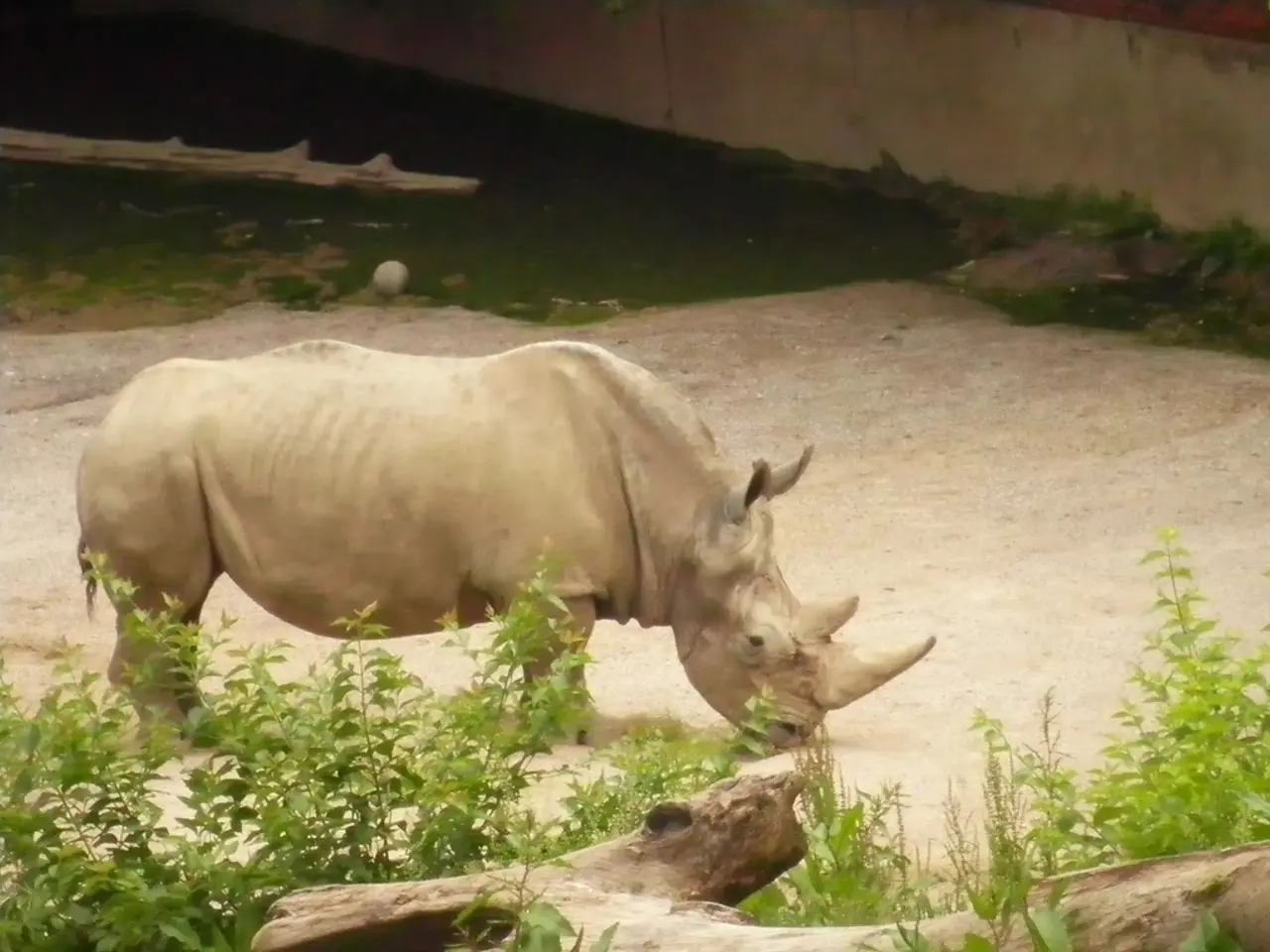Criminal syndicate in South Africa under scrutiny for orchestrating a vast rhino horn smuggling operation, moving close to a thousand horns illegally.
Breaking News: South African Authorities Crack Down on Rhino Horn Trafficking Syndicate
In a significant stride towards protecting South Africa's natural heritage, the South African Police's elite Hawks unit has arrested six suspects accused of orchestrating one of the country's largest rhino horn trafficking operations. The suspects, aged between 49 and 84, include John Hume, the controversial former owner of the world's largest rhino farm, and Clive Melville, who was previously accused of illegally transporting 167 rhino horns in 2019.
The syndicate, which has been under investigation for 7 years, is alleged to have defrauded the Department of Forestry, Fisheries and the Environment by obtaining permits under false pretenses to buy and sell rhino horns domestically. However, the investigation suggests that they were actually funneling these horns into illegal international markets, primarily in Southeast Asia, where the demand for rhino horns is high due to their use in traditional medicine.
The complex investigation, which involved 964 rhino horns destined for illegal markets, demonstrates South African enforcement agencies' commitment to pursuing those who plunder wildlife for criminal profit. The suspects, including Hume, surrendered to the Hawks unit and appeared in Pretoria Magistrates' Court.
John Hume, 83, has spent decades advocating for the legalization of international rhino horn trade. Despite his efforts, South African law, like the Convention on International Trade in Endangered Species of Wild Fauna and Flora, prohibits international commercial trade in rhino horns. Domestic trade is permitted with valid government permits.
The arrests come amidst ongoing concerns about poaching in the KwaZulu-Natal province, which has emerged as the epicenter of the ongoing poaching crisis. Despite a 15% decrease in poaching deaths from 2023 to 2024, poaching continues to be a significant issue. In the first three months of 2025, 103 rhinos were killed, more than one per day, according to government figures.
Rhino horn can fetch more than $60,000 per kilogram on the black market, making it a commodity more valuable than gold, platinum, or diamonds. Criminal syndicates have adapted to target even dehorned rhinos for their horn stumps.
South African Environment Minister Dr. Dion George called the arrests "a powerful demonstration of South Africa's resolve to protect its natural heritage." The minister's sentiments were echoed by Catharina van Niekerk, Izak du Toit, Mattheus Poggenpoel, and Johannes Hennop, the other suspects in the case, who were granted bail ranging from 2,000 to 10,000 rand, while Hume was granted bail of 100,000 rand.
As the fight against wildlife crime continues, it is clear that the authorities are committed to ensuring the survival of South Africa's iconic rhino population.
Read also:
- Peptide YY (PYY): Exploring its Role in Appetite Suppression, Intestinal Health, and Cognitive Links
- Toddler Health: Rotavirus Signs, Origins, and Potential Complications
- Digestive issues and heart discomfort: Root causes and associated health conditions
- House Infernos: Deadly Hazards Surpassing the Flames








